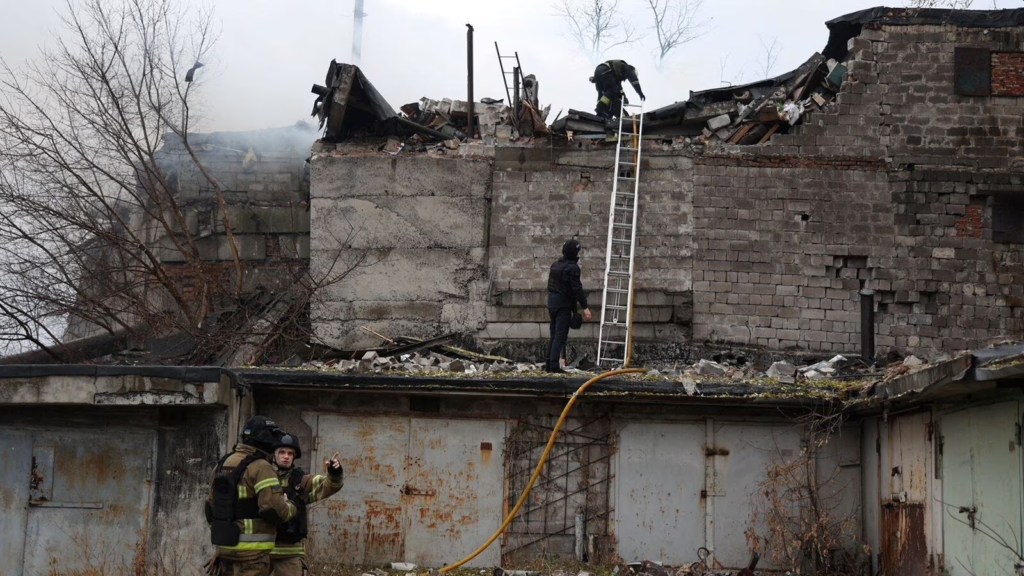Russia Launches ICBM: A Significant Escalation in the Ukraine Conflict
The recent launch of an intercontinental ballistic missile (ICBM) by Russia targeting Ukraine marks a significant escalation in the ongoing conflict. This development has raised global concerns and highlighted the increasing intensity of the war. Here’s an in-depth look at the implications of this event, the challenges it presents, and the broader context of the conflict.

Background of the Conflict
The conflict between Russia and Ukraine has been ongoing since 2014, following Russia’s annexation of Crimea and the subsequent unrest in Eastern Ukraine. The situation escalated dramatically in February 2022 when Russia launched a full-scale invasion of Ukraine, leading to widespread destruction and a severe humanitarian crisis.
Recent Developments
On November 21, 2024, Russia reportedly launched an ICBM from the Astrakhan region, targeting the city of Dnipro in Ukraine. This marks the first use of such a weapon in the conflict, signaling a major escalation. The attack also involved the use of Kh-101 cruise missiles, with Ukrainian air defenses intercepting most of them.
Implications of the ICBM Launch
The use of an ICBM in the conflict has several significant implications:
- Escalation of Hostilities: The deployment of an ICBM represents a substantial escalation in the conflict. ICBMs are typically associated with strategic, long-range attacks and can carry both conventional and nuclear warheads. Their use in this context underscores the severity of the situation and the potential for further escalation.
- International Reactions: The international community has reacted strongly to this development. The European Union has condemned the attack, calling it a “clear escalation” and a “quantitative and qualitative change” in the war. This move is likely to increase tensions between Russia and Western nations, potentially leading to further sanctions and diplomatic actions.
- Humanitarian Impact: The attack on Dnipro has exacerbated the already dire humanitarian situation in Ukraine. The city, which has been a focal point of the conflict, has suffered significant damage to its infrastructure and civilian areas. The use of such a powerful weapon raises concerns about the potential for mass casualties and long-term environmental damage.
Challenges and Strategic Considerations
- Military Strategy: The launch of an ICBM by Russia may be seen as a strategic move to deter further Western support for Ukraine. By demonstrating its capability and willingness to use such weapons, Russia is sending a message to NATO and other allies of Ukraine about the potential consequences of their involvement.
- Diplomatic Efforts: This escalation complicates diplomatic efforts to resolve the conflict. The use of an ICBM may harden positions on both sides, making negotiations more difficult. It also raises the stakes for international mediators who are trying to broker a ceasefire or peace agreement.
- Global Security: The use of an ICBM in the conflict has broader implications for global security. It highlights the risks associated with the proliferation of such weapons and the potential for their use in regional conflicts. This development may prompt a reevaluation of global arms control agreements and efforts to prevent the spread of ICBMs and other strategic weapons.
The launch of an ICBM by Russia targeting Ukraine marks a significant and alarming escalation in the ongoing conflict. It underscores the severity of the situation and the challenges faced by the international community in addressing this crisis. The implications of this event are far-reaching, affecting not only the immediate conflict but also broader issues of global security and stability. As the situation continues to evolve, it is crucial for all parties involved to seek a resolution that minimizes further escalation and prioritizes the protection of civilian lives and infrastructure.










